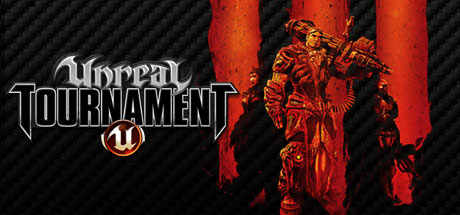Unreal Tournament 2003 Demo Macintosh This is the demo for Unreal Tournament 2003, the anticipated sequel to one of the greates first person shooters of all time. This is the Macintosh build for you with Mac OSX v10.2.6. The demo features 4 maps (2 DM, 1 CTF, 1 bombing run) and most of the weapons in the full version of the game. Unreal Tournament for Mac OS and Mac OS X This Mac OS version got released in January 2000; the original game was released in November 1999. Unfortunately, the printed material has gotten lost, so this includes only a scan of the disc. Good news from Ryan C. Gordon, the programmer who brought Unreal Tournament 2004 to the Macintosh. Gordon has reported success getting the game to run on an Intel-based Mac at last week's. MacOS systems will need a 64-bit x86 CPU and Mac OS X Mavericks (10.9) or later. Some rendering features may be unavaiable on macOS. Besides fixing hundreds of bugs, the OldUnreal UT patches also add features such as: Raw input support and full mouse smoothing control; OldUnreal's latest OpenGL 4-based 3d renderer (XOpenGLDrv). After being delayed from a late 2003 release, Unreal Tournament 2004 was released on March 16, 2004, for the PC (Linux x86-32/x86-64 and Windows), the Mac OS X.
Developer: Epic Games

Release date: 2000
Version: 436 + Full Game
Unreal Tournament 99 Mac Os X


Interface language: English
Tablet: Not required
Platform: Intel/PPC
To bookmarksUnreal Tournament is a first-person shooter video game developed by Epic Games and Digital Extremes. The second installment in the Unreal series, it was first published by GT Interactive in 1999 for Microsoft Windows, and later released on the PlayStation 2 and Dreamcast by Infogrames in 2000 and 2001, respectively. Players compete in a series of matches of various types, with the general aim of out-killing opponents. The PC version supports multiplayer online or over a local area network. Free expansion packs were released, some of which were bundled with a 2000 re-release: Unreal Tournament: Game of the Year Edition.
Powered by the Unreal Engine and initially developed as an expansion for Unreal, Unreal Tournament received critical acclaim, with reviewers praising the graphics, level design and gameplay, although the console ports were noted for having limitations. The design of the game shifted the series' focus to competitive multiplayer action with the releases of sequels Unreal Tournament 2003 in 2002, Unreal Tournament 2004 in 2004, and Unreal Tournament 3 in 2007.
Gameplay

Unreal Tournament is an arena first-person shooter, with head-to-head multiplayer deathmatches being the primary focus of the game. The single-player campaign is a series of arena matches played with bots, where the player competes for the title of Grand Champion. The player moves up the tournament ladder in order to challenge the current champion, Xan, a mysterious being with exceptional skill. Also available is a Practice mode, in which, as its name implies, the player practices a match. Match settings (such as score and time limits) can be customized. Also available are 'mutators' which drastically alter gameplay aspects, such as 'InstaGib', the use of which makes players compete with instant-kill weapons instead of the normal ones. Weapons include Enforcers, Rocket Launchers, and Rippers, which fire ricocheting blades. Each weapon has two firing modes which have different effects: for example, Rippers can also fire non-ricocheting blades which explode on impact. A special weapon is the Redeemer, which causes a very large and powerful explosion.
Unreal Tournament 1999 Mac Os X
Screenshots from the game Unreal Tournament

Release date: 2000
Version: 436 + Full Game
Unreal Tournament 99 Mac Os X
Interface language: English
Tablet: Not required
Platform: Intel/PPC
To bookmarksUnreal Tournament is a first-person shooter video game developed by Epic Games and Digital Extremes. The second installment in the Unreal series, it was first published by GT Interactive in 1999 for Microsoft Windows, and later released on the PlayStation 2 and Dreamcast by Infogrames in 2000 and 2001, respectively. Players compete in a series of matches of various types, with the general aim of out-killing opponents. The PC version supports multiplayer online or over a local area network. Free expansion packs were released, some of which were bundled with a 2000 re-release: Unreal Tournament: Game of the Year Edition.
Powered by the Unreal Engine and initially developed as an expansion for Unreal, Unreal Tournament received critical acclaim, with reviewers praising the graphics, level design and gameplay, although the console ports were noted for having limitations. The design of the game shifted the series' focus to competitive multiplayer action with the releases of sequels Unreal Tournament 2003 in 2002, Unreal Tournament 2004 in 2004, and Unreal Tournament 3 in 2007.
Gameplay
Unreal Tournament is an arena first-person shooter, with head-to-head multiplayer deathmatches being the primary focus of the game. The single-player campaign is a series of arena matches played with bots, where the player competes for the title of Grand Champion. The player moves up the tournament ladder in order to challenge the current champion, Xan, a mysterious being with exceptional skill. Also available is a Practice mode, in which, as its name implies, the player practices a match. Match settings (such as score and time limits) can be customized. Also available are 'mutators' which drastically alter gameplay aspects, such as 'InstaGib', the use of which makes players compete with instant-kill weapons instead of the normal ones. Weapons include Enforcers, Rocket Launchers, and Rippers, which fire ricocheting blades. Each weapon has two firing modes which have different effects: for example, Rippers can also fire non-ricocheting blades which explode on impact. A special weapon is the Redeemer, which causes a very large and powerful explosion.
Unreal Tournament 1999 Mac Os X
Screenshots from the game Unreal Tournament
- PowerPC 603e at 200 MHz or faster
- 64 MB RAM
- Mac OS 7.6 or higher
- 2.17 GB hard disk space
